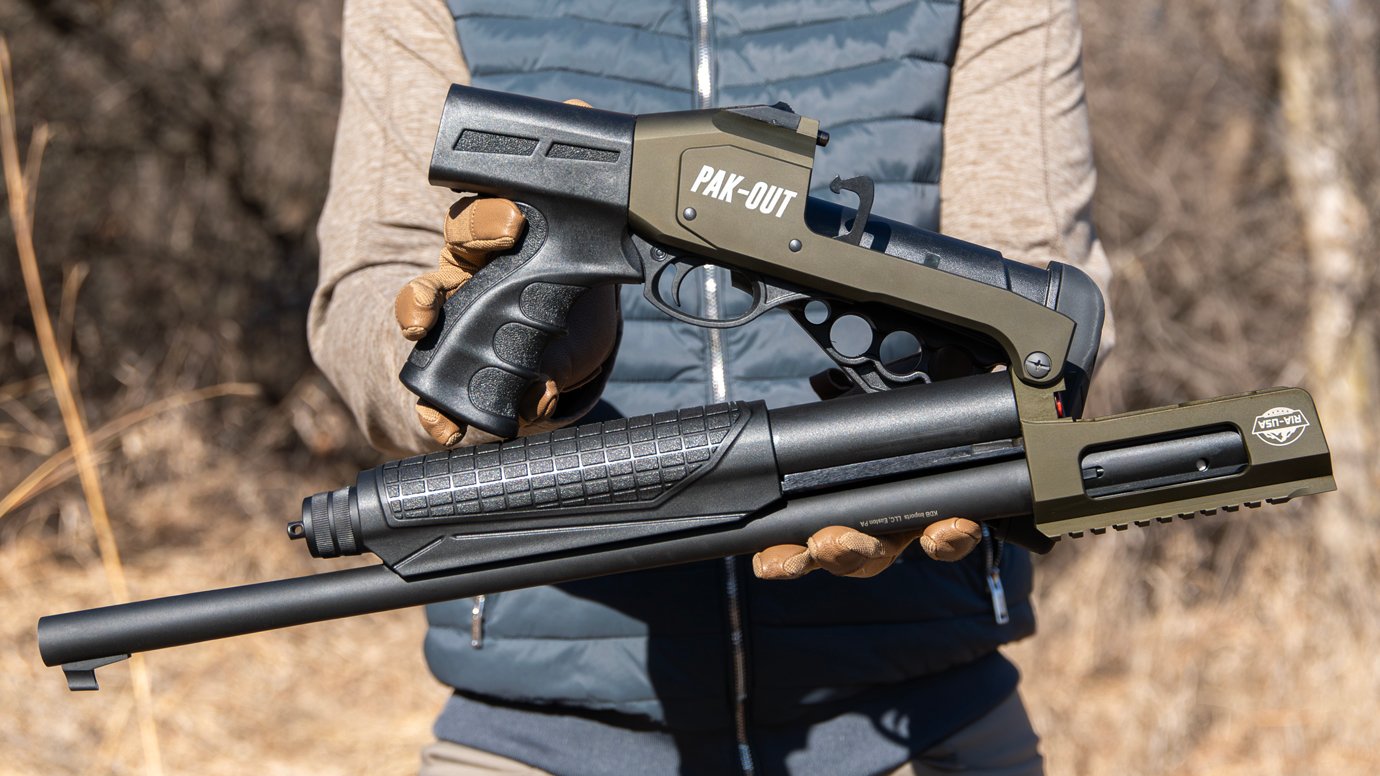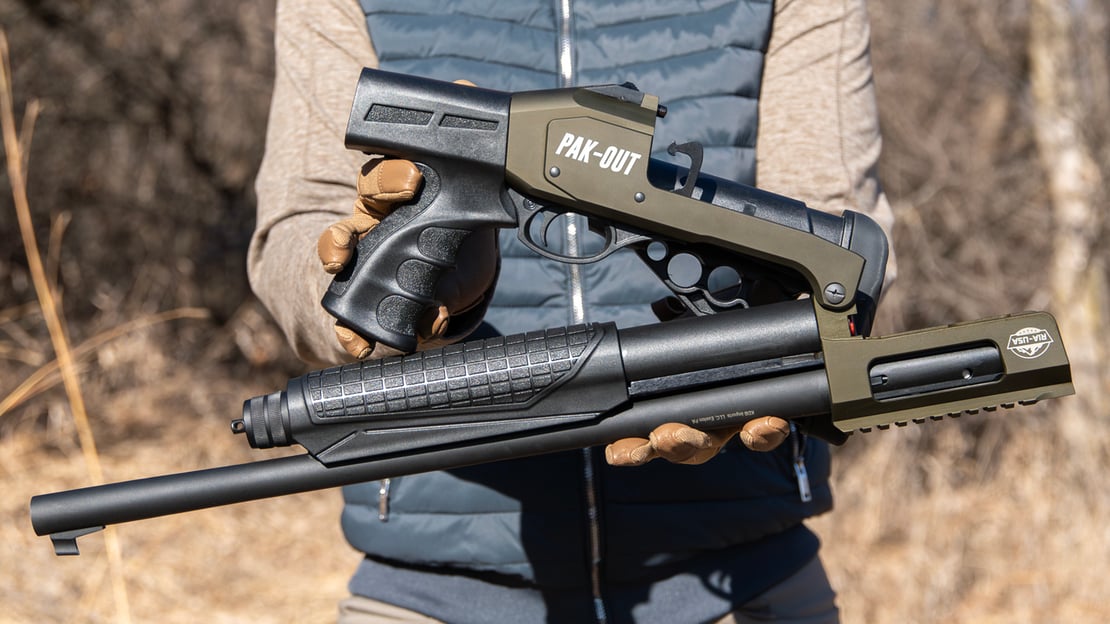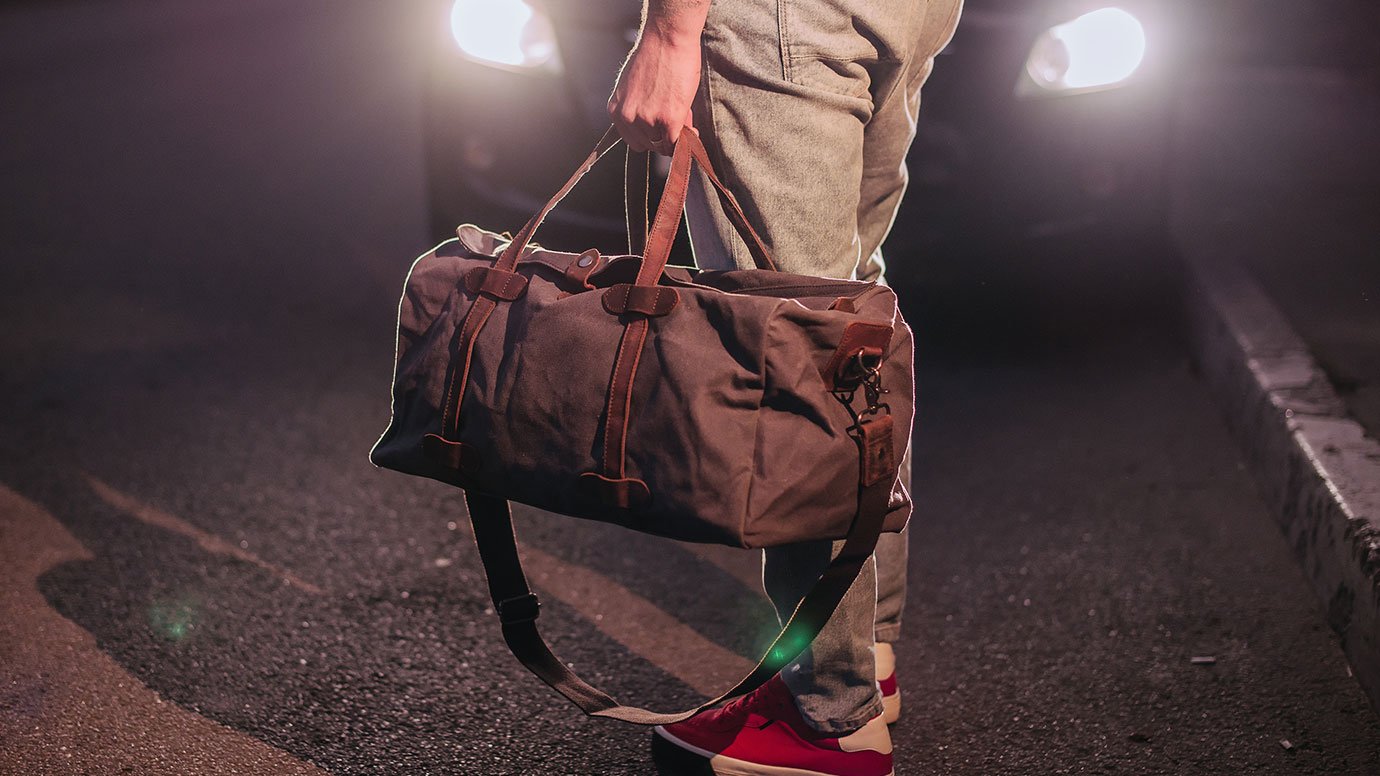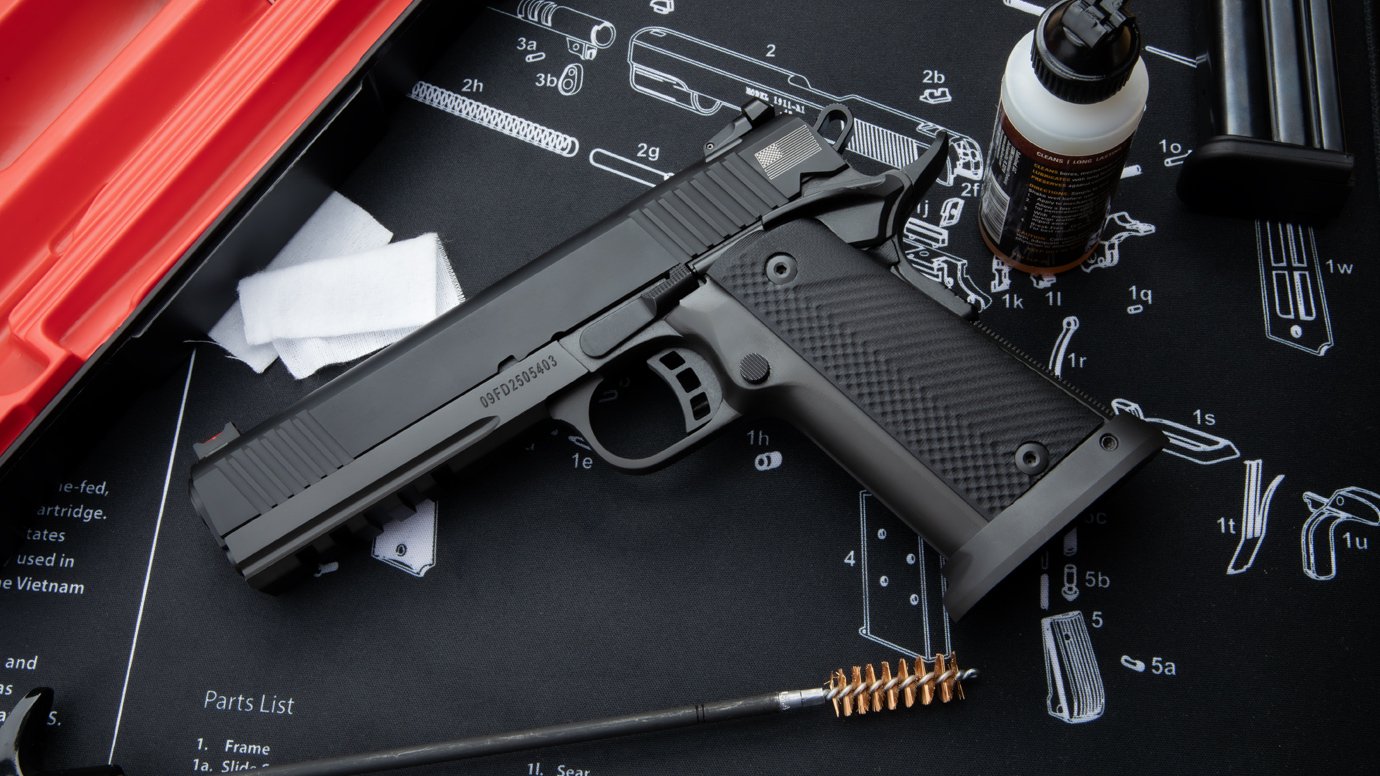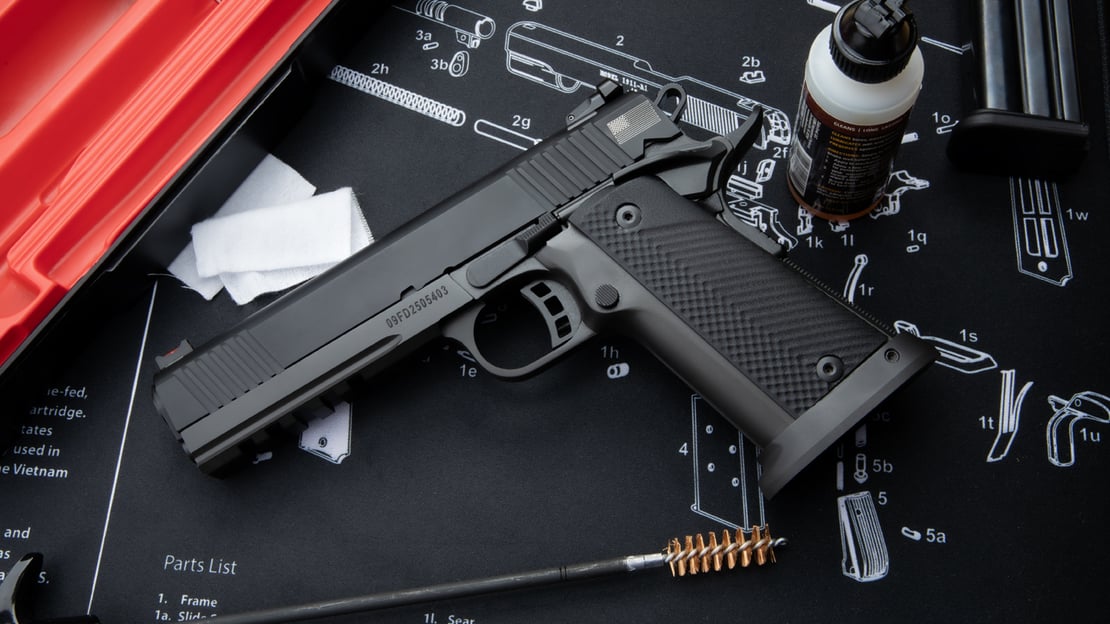Are You Ready for a Home-Defense Firearm? 5 Big Questions
Posted by Team Armscor on Aug 20, 2024 6 Minute Read
-1.png?width=1110&height=624&name=Untitled%20design%20(3)-1.png)
As the age-old saying goes: with great power comes great responsibility. This is especially true for gun owners. In the right hands, a gun is a tool capable of taking and defending life. In untrained, unprepared, or unskilled hands, a gun can be a liability.
5 Critical Questions Before Buying a Home-Defense Firearm
1. Do You Have a Safe Place to Keep Your Gun?
When it comes to guns, safety should never be an afterthought. Ensure you, your family and your children stay safe and prioritize getting a safe, secure place to keep your firearm — otherwise, your new purchase can become a serious hazard. If you don't safely store your weapons, children find them, leading to unplanned firing and potential injury of those involved. Every responsible gun owner should have a gun safe or a comparably safe and secure location to store their firearm — especially if they live in a home with young children. Children are curious by nature, and a gun that's simply hidden in a drawer or under your bed will almost certainly be found by an inquisitive child.
Here are a few things to Consider when safely storing your firearm:
- Trigger Locks: They’re an inexpensive safety option for unloaded guns.
- Gun Safes: Steel, heavy gun safes are prime for keeping firearms away from unauthorized users. New gun safes are as reliable as they come.
- Lock Boxes: They are great for housing pistols and revolvers. Since lockboxes are small, they’re also quickly accessible. If danger strikes in the night, you can quickly access your firearm from your nightstand. Just be sure to keep the keys secret and safe from unauthorized users.
Here are a few things to teach your kids before a firearm enters the home:
- Guns are powerful tools. In the wrong hands, they have the potential to be very harmful.
- Never touch a gun. Children should never play with guns; they are not toys.
- If you see a gun, leave the area. Seek safety immediately.
- Tell an adult if you ever see a gun. Once a child is at a safe distance from the firearm, they should notify an adult immediately.
2. Does This Gun Suit Your Needs?
Every gun is different. High capacity or standard capacity? Polymer or metal? Single action or double action? Is revolver or semi-automatic? 9MM or 10MM? These details can make or break a person's preference for their firearm and could be the reason you end up leaving a gun in the safe when you pack up to head to the range. With this in mind, you'll want to think about how you plan to use your gun and analyze how each of your options measures up against your intended use. If you're planning to carry concealed, will you want a smaller gun that holds fewer rounds for easier concealment, or a larger, high-capacity gun with ample ammo to get the job done? Are you looking for a lighter, polymer pistol, or a durable, reliable 1911? Take each element of the guns you are considering, and weight those elements against their application to your desired use.
3. Can You Customize Your Gun?
Many first-time gun buyers take their first purchase at face value. They want a gun that fits their immediate needs as is, and they don't look for other options that may be more easily adapted to the ways they may use their gun down the line. The more customizable your gun is, the more likely it is that you will continue to use it in the future as your needs change. Consider upgrades like these:
- Sights — Sometimes standard sights can be difficult to use, especially at night or in low-light emergency scenarios. Night sights and laser sights can make your home defense weapon easier to use, making aiming less of a hassle.
- Grips & Controls — In a high-stress, home defense situation, having a customized grip can improve your weapon handling. Similarly, an extended magazine release can boost the performance of your firearm.
- Tactical Accessories — Customization doesn't stop at grips and sights — consider additional tactical accessories like flashlights, muzzles, lasers and more to elevate your home-defense guns.
4. Do You Trust Yourself to Handle Your Gun Safely?
Gun ownership and gun safety go hand-in-hand, and it's important that you take the safety elements of your role seriously. What does that mean? It means following rigid trigger discipline; it means always keeping your gun aimed in a safe direction; it means always being cognizant of whether or not your gun is loaded and it means always using the proper safety equipment. These are the baseline responsibilities for gun ownership. If any of these concepts are unfamiliar, you should brush up on your basic gun safety skills before you head to your FFL.
5. Are You Prepared to Use Your Gun?
Many shooters today purchase their firearms for self-defense purposes. If this is you, you need to seriously consider if you are ready to use your gun defensively to protect yourself and others. Being mentally prepared for defensive gun use is something that takes time and introspection.
Getting ready to pull the trigger on your first gun purchase is a big step in every aspiring gun owner's life. But thinking about firearms and owning one are two different beasts entirely: the latter comes with a serious set of responsibilities. So it is in your best interest to carefully consider these responsibilities prior to making your purchase. If you feel you're ready, visit our home defense page and see which firearms are ideal for protecting yourself and when to use them. You'll be glad you did your homework.

